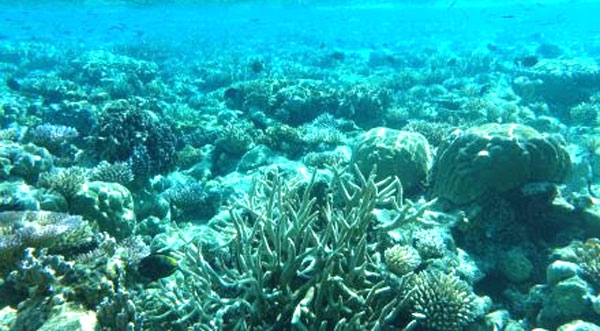local conditions influence the recovery rates of coral reefs

BREVARD COUNTY • MELBOURNE, FLORIDA – Rising temperatures from climate change pose new threats to coral reefs worldwide, but a new study from a Florida Tech lab has found that managing conditions at the local level—such as reducing pollution and macroalgae—can help coral reefs recover after disturbances.
The findings from Florida Tech Ph.D. student Andrew Walker, research assistant Chelsey Kratochwill and professor Rob van Woesik were published on Jan. 10 in Global Change Biology in the paper, “Past disturbances and local conditions influence the recovery rates of coral reefs.”
“We set out to test whether local conditions would impact coral recovery rates following hurricanes and marine heatwaves from 1977 to 2020,” Walker said.
The researchers found in a survey of nearly 2,000 study sites across the Pacific, Indian and Atlantic oceans that favorable conditions such as clean water and sparse growth of seaweeds did in fact prime reefs to recover rapidly.
“The majority of reefs in the Indian and Pacific oceans have maintained high recovery rates over the past three decades, but recovery rates on reefs in the Atlantic Ocean have declined significantly since the 1970s,” Walker said.
Overall, these new results confirm the benefits of effectively managing reefs on a local scale, noted van Woesik, who directs the Institute for Global Ecology at Florida Tech and is funded by the National Science Foundation.

“As threats from climate change keep ratcheting up worldwide, identifying local reefs and oceanic regions with high recovery rates is crucial to protecting reefs and ensuring their future. And identifying the environmental drivers behind recovery rates is vital to predicting changes in coral reefs,” van Woesik said.
“Our research incentivizes protection and conservation locally, in tandem with reducing greenhouse gases globally, as the oceans continue to warm.”
CLICK HERE FOR BREVARD COUNTY NEWS
The post Florida Tech Research Shows Value of Simultaneous Action to Help Save Coral Reefs appeared first on Space Coast Daily.

